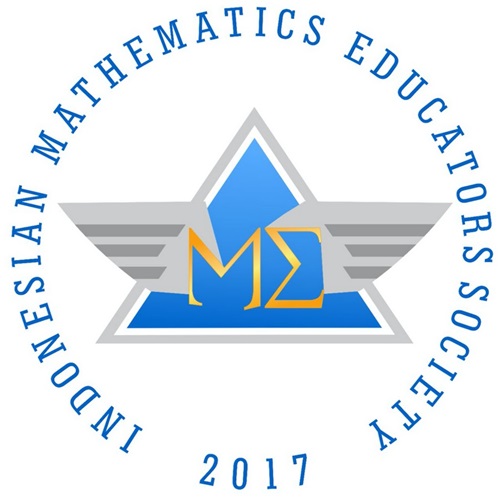Analyze The Students’s Mathematics Literacy Abilities in Inferenstial Statistics Subject Based on the Learning Styles
DOI:
https://doi.org/10.22437/edumatica.v10i2.10621Keywords:
learning style, inferential statistics, mathematics literacy abilitiesAbstract
The mathematics literacy abilities are strongly needed for the students to be able to face educational challenges from the cognitive aspects. The students' mathematics literacy abilities can be viewed from various dimensions, one of whixzch is the learning styles. The purpose of this research is to analyze the students' mathematics literacy abilities in inferential statistics subject based on the learning styles. This is a qualitative descriptive research. The subjects of this research are the fourth semester students at a higher education institution in Magelang, Central Java, Indonesia, who are currently taking inferential statistics course. The instruments used in this research are test and interview instruments. The data analysis is carried out through data reduction, data presentation, and drawing conclusions. The students’ mathematics literacy abilities with divergent learning styles are only able to arrive at the formulating step. The students’ mathematics literacy abilities with convergent learning styles are able to take the mathematical literacy processes. The students' mathematics literacy abilities in the assimilation learning style have come to the interpreting step, but they have not been able yet to solve the problems well. The students' mathematics literacy abilities in the accommodation learning style have been able to understand and check (formulating and interpreting) well but in preparing plans or arguing (employing stage) in solving the problems, it has not been achieved yet properly. Based on the research results, it is found that each different learning style has its own different mathematics literacy abilities
Downloads
References
Agustama, Y., & Muksar, M. (2013). Identifikasi Gaya Belajar Matematika Siswa Kelas VII di SMP Negeri 14 Malang. Retrieved September 8, 2020, from Journal Online UM: http://jurnal-online.um.ac.id/data/artikel/artikel70086450DCF783AE005F630704AFF309.pdf
Akram, M., Farid, S., & Luqman, M. (2013). An exploration of relationship between perceptual learning styles and achievement goals. International Journal of Business and Behavioral Sciences, 3(1), 27-35.
Fuad, A. J. (2016). Meta Analisis: Deferensiasi Gaya Belajar dengan Metode Pembelajaran. Jurnal An-Nafs, 1(2), 151-165.
Gerung, N. J. (2001). Conceptual Learning and Learning Style (Kajian Konseptual tentang Belajar dan Gaya Belajar). Retrieved September 11, 2020, from Journa Uniera: http://journal.uniera.ac.id/pdf_repository/juniera5Zmiv7L6ep2ZJIvSZhtg1IT0GE.pdf
House, J. D. (2006). Mathematics Beliefs and Achiefment of Elementary School Students in Japan and the United States: Result from the Third International Mathematics and Science Study. The Journal of Genetic Psychology, 167(1), 31-45.
Ilmiyah, S., & Masriyah. (2013). Profil Pemecahan Masaah Matematika Siswa SMP pada Materi Pecahan Ditinjau dari Gaya Belajar. Retrieved September 8, 2020, from Dokumen Tips: http://dokumen.tips/documents/profil-pemecahan-masalah-matematika-siswa-smp-pada-materi-pecahan-ditinjau.html
Jalius, N. (2020). Comparison of Learning Style Between Engineering and Non-Engineering Student in Vocational Education. International Journal of Innovation, Creativity, and Change, 13(12), 283-294.
Ma, V. J., & Xin, M. (2014). A Comparative Analysis of the Relationship Between Learning Style and Mathematics Performance. International Journal of STEM Education, 1(3), 1-13.
Middleton, K., Rick, E., & Wright, P. (2013). Examining the Relationship Between Learning Style Preferences and Attitudes toward Mathematics Among Students in Higher Education. Institute for Learning Styles Journal, 1(3), 1-15.
Nasution. (2008). Berbagai Pendekatan dalam Proses Belajar Mengajar. Jakarta: Bumi Aksara.
OECD. (2010). The Programme for Internationa Student Assesment (PISA). Retrieved September 20, 2020, from OECD: http://www.oecd.org/dataoecd/61/15/46241909.pdf
OECD. (2013). PISA 2012 Assessment and Analytical Framework: Mathematics, Reading, Science, Problem Solving and Financial Literacy. Paris: OECD Publishing.
OECD. (2013). PISA 2012 Results in Focus What 15-Year-Olds Know and What They Can do With What They Know. Retrieved September 20, 2020, from OECD: http://www.oecd.org/pisa/keyfindings/pisa-2012-results-overview.pdf
Ojose, B. (2011). Mathematics Literacy: Are We Able To Put The Mathematics We Learn Into Everiday Use? Journal of Mathematics Education, 4(1), 89-100.
Porter, B. D., & Hernacki, M. (2013). Quantum earning : Membiasakan Belajar Nyaman dan Menyenangkan. (A. Abbdurrahman, Trans.) Bandung: Kaifa.
Ramadan. (2011). An Investigation Of The Learning Styles Of Prospective Educators. The Online Journal Of New Horizons In Education, 1(1), 1-6.
Riau, B. (2016). Analisis Kemampuan Pemecahan Masalah Matematika Siswa Kelas VII berdasarkan Gaya Belajar pada Pembelajaran PBL. Unnes Journal of Mathematics Education Research, 5(2), 166-177.
Ricardo, R., Mardyana, & Retno, D. (2014). Tingkat Kreativitas Siswa dalam Memecahkan Masalah Matematika Divergen Ditinjau dari Gaya Belajar Siswa. Jurnal Elektronik Pembelajaran Matematika, 2(2), 141-151.
Sengodan, V., & Zanaton, H. I. (2012). Students’ Learning Styles and Intrinsic Motivation in Learning Mathematics. Asian Social Science, 8(16).
Sugiyono. (2010). Metode Penelitian Kuantitatif, Kualitatif dan R&D. Bandung: Alfabeta.
Suryana, A. (2012). Kemampuan Berpikir Matematis Tingkat Lanjut dalam Mata Kuliah Statistika Matematika. Yogyakarta: UNY.
Tai, & Chin-Hsiu. (2014). Mathematical Literacy of Indigenous Students in Taiwan. International Research Journal of Sustainable Science & Engineering, 2(3).
Tandiayuk, M. B. (2012). Implementasi Gaya Belajar Model Kolb dalam Lc5e untuk Memaksimalkan Pembelajaran Luas Segitiga Heron di Kelas VIII A SMP N 19 Palu. Jurnal DIKDAS, 1(1), 1-23.
Zulfiani. (2020). Science Adaptive Assessment Tool: Kolb’s Learning Style Profile and Student’s Higher Order Thingking Skill Level. Indonesian Journal of Science Education, 9(2), 194-207.
Downloads
Published
Versions
- 2020-10-29 (2)
- 2020-10-28 (1)
How to Cite
Issue
Section
License
Copyright (c) 2020 Aprilia Nurul Chasanah, Arief Budi Wicaksono, Sherlya Nurtsaniyah, Rivka Nur Utami

This work is licensed under a Creative Commons Attribution-NonCommercial-ShareAlike 4.0 International License.







